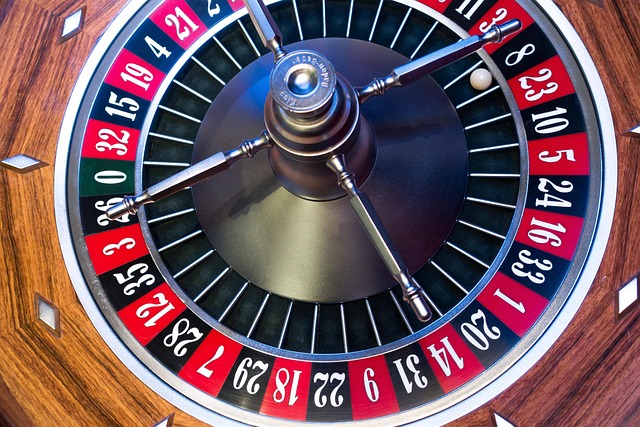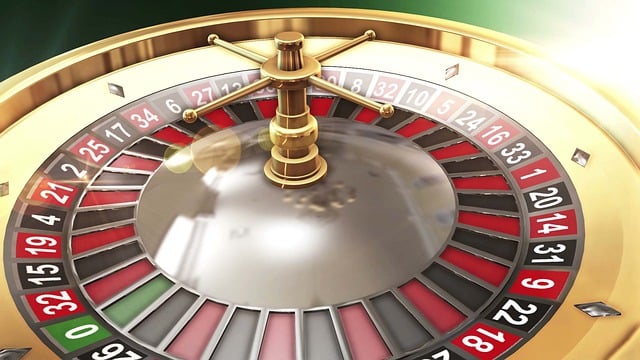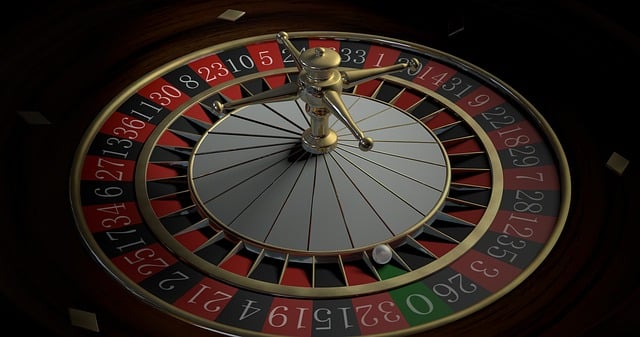Roulette, dating back to 17th-century France as "Rousette," has evolved from mechanical spinning mechanisms to global popularity, with variations like American and European roulette. Its blend of chance, strategy, and excitement, coupled with accessible gameplay, makes it a casino staple enjoyed worldwide today.
“Delve into the captivating world of roulette, a game that has enticed gamblers for centuries. This article offers a comprehensive guide to understanding the origins and history of this iconic casino staple. From its humble beginnings in 17th-century France to its global popularity today, roulette’s evolution is a fascinating tale. We’ll explore the intricate design of the roulette wheel, deciphering sectors and numbers, and demystifying inside and outside bets. Furthermore, uncover strategic insights and mathematical probabilities that could enhance your gameplay.”
- History and Origins of Roulette
- – A brief look at the game's roots and evolution
- – When and where it first emerged
History and Origins of Roulette

Roulette has a rich history dating back several centuries, with its origins rooted in various forms of gambling that evolved over time. The exact point of inception is somewhat shrouded in mystery, but it is believed to have emerged from a fusion of different gaming traditions. One of the earliest known precursors to modern roulette can be traced back to 17th-century France, where a game called “Rousette” was played, involving throwing a small object into a circular container with slots marked with numbers and colors. Over the years, this primitive version evolved, incorporating mechanical spinning mechanisms and a more structured betting system.
As European settlers traveled and colonized new lands, they carried their gambling traditions with them, including early forms of roulette. The game’s popularity spread across continents, giving rise to numerous variations. American roulette, for instance, differs from its European counterpart in terms of wheel design and bet options, reflecting cultural and regional influences. Today, roulette continues to captivate players worldwide, with its unique blend of chance, strategy, and the thrill of watching the spinning wheel determine one’s fate on the gaming table.
– A brief look at the game's roots and evolution

Roulette has its origins in 18th-century France, where it emerged as a popular pastime among royalty and nobles. The game’s name is derived from French words meaning “little wheel,” reflecting its core mechanism—a spinning wheel with numbered pockets, usually ranging from 0 to 36, and sometimes including additional zeros (00). Over time, roulette evolved from simple wooden wheels in private casinos to the elaborate, mechanically advanced versions found in today’s land-based and online gaming establishments. This evolution has been driven by technological advancements and a growing global appetite for casino games, making roulette one of the most recognizable and played table games worldwide.
The game’s simplicity—players bet on where a small ball will land after the wheel is spun—has ensured its enduring popularity. Despite the introduction of various rulesets and betting strategies, the core experience remains accessible to beginners while offering enough complexity to captivate seasoned players. Roulette’s global reach has also led to regional variations, with European roulette (37 pockets) contrasting American roulette (38 pockets due to the double-zero pocket), each enjoying its own fan base. This rich history and ongoing evolution continue to fuel the game’s allure, cementing roulette as a staple in the casino landscape.
– When and where it first emerged

Roulette first emerged in Europe during the 18th century, with its exact origins tracing back to a French gambling house in the city of Paris. This classic casino game has since spread worldwide, captivating players with its simple yet intriguing mechanics. The earliest forms of roulette were developed as a way to combine elements of both luck and strategy, making it a popular pastime among European nobility and later, in the 19th century, spreading to America and beyond.
Over time, roulette evolved, with variations like American Roulette and European Roulette becoming prominent. Its global popularity is attributed to its accessibility, fast-paced gameplay, and the thrill of watching the spinning wheel determine a winner. Today, roulette remains a staple in casinos worldwide, offering players an opportunity to enjoy both the suspense of the spin and the excitement of potential big wins.
Roulette, with its rich history and global appeal, has evolved from a simple game of chance to a captivating phenomenon in the world of gambling. Tracing back to its early beginnings in 18th century France, roulette’s journey has been marked by transformations that have shaped it into the dynamic game we know today. This timeless classic continues to captivate players worldwide, offering an enchanting blend of luck, strategy, and excitement.






